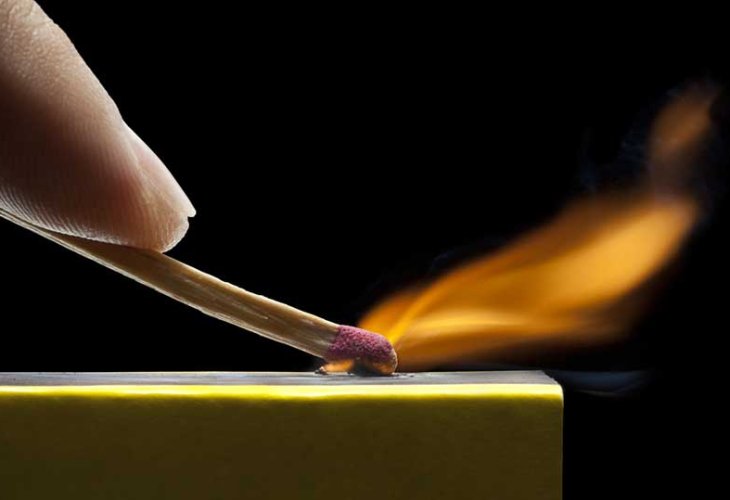Jewish Law
Why Lighting Fire Is Still Forbidden on Shabbat — Even with Modern Technology
The Torah's definition of “work” as creative action, and how this timeless principle connects to the essence of divine creation
- Rabbi Zamir Cohen
- |Updated

Why is it still forbidden today to ignite a fire on Shabbat? After all, lighting a match, pressing a button, or turning a car key is effortless — unlike ancient times, when producing fire required striking stones or rubbing sticks together.
* * *
If the Torah had said, “Do not exert yourself on Shabbat” or “Do not perform tiring actions,” then the question would make sense. In that case, any physically demanding task — like moving heavy chairs for guests, carrying large trays of food for a Shabbat meal, or walking several kilometers to visit relatives — may have been forbidden, as these involve physical exertion.
However, the Torah does not prohibit effort on Shabbat, as long as it serves a Shabbat purpose. What the Torah forbids is melacha — creative work, regardless of how easy or difficult it is.
“You Shall Not Kindle Fire” — A Divine Command Beyond Physical Labor
The Torah states clearly: “You shall not kindle fire in any of your dwellings on the Sabbath day.” (Shemot 35:3)
Notice that the verse makes no distinction between lighting a fire that requires great effort and one that requires none. The issue is not difficulty, but creation.
Lighting a fire is considered an act of creation — bringing something new into existence that was not there before. Whether done with strenuous labor or the simple flick of a switch, the act is the same: creating energy, producing heat and light. That is the reason that it is prohibited.
Shabbat: Resting From Creation, Not From Fatigue
We can better understand this by reflecting on the Divine model. God did not “toil” or “grow tired” during the six days of creation. Scripture says: “By the word of the Lord the heavens were made, and by the breath of His mouth all their host” (Tehillim 33:6).
“For He spoke, and it came to be; He commanded, and it stood firm” (Tehillim 33:9).
Creation, therefore, is called melacha not because of effort or fatigue, but because of its result — bringing something new into existence. When the Torah says, “And God completed His work (melachto) on the seventh day” (Bereishit 2:1–2), it defines melacha as the process of creative formation.
Thus, the commandment “Do not do any work” (Shemot 20:10) means refraining from acts of creation — not merely avoiding physical effort.
How Do We Know What Is “Creative Work”?
How can we know which actions qualify as melacha — acts of creative formation, and which do not? After all, weaving, sewing, cooking, or building all use materials that already exist. Why are they considered “creation”?
The answer lies in the Oral Torah, passed down alongside the Written Torah. The Sages received a precise definition of melacha: 39 categories of creative labor — the “Avot Melachot”, derived from the types of work done in constructing the Tabernacle (Mishkan).
Each primary category has subcategories called toladot (derivative labors).
Examples of Creative Labor That Do Not Involve Effort
Even small or effortless actions are considered full melacha if they create or transform something new:
Sowing: Placing even one seed in the soil — a creative act that begins life.
Reaping: Picking one fruit or cutting one stalk — detaching life from its source.
Igniting: Striking a match, starting a car, or pressing a light switch — producing fire or energy where none existed.
Cooking: Dropping even a single pea into boiling water — transforming its state.
Kneading, weaving, writing, and building — all create new forms or functions.
In every case, it’s not the effort that matters, but the creation.
Why Fire Is Mentioned Separately
The Torah states specifically, “You shall not kindle fire in all your dwellings on the Sabbath day” (Shemot 35:3).
The Talmud (Shabbat 70a) discusses why the Torah singled out fire among the 39 labors. One explanation is that fire represents the clearest example of creative energy — transforming potential into reality, just as God did in creation.
Fire is also symbolic: it represents human control over nature — the very essence of creativity. On Shabbat, we step back from that power, acknowledging that God alone is the true Creator.

